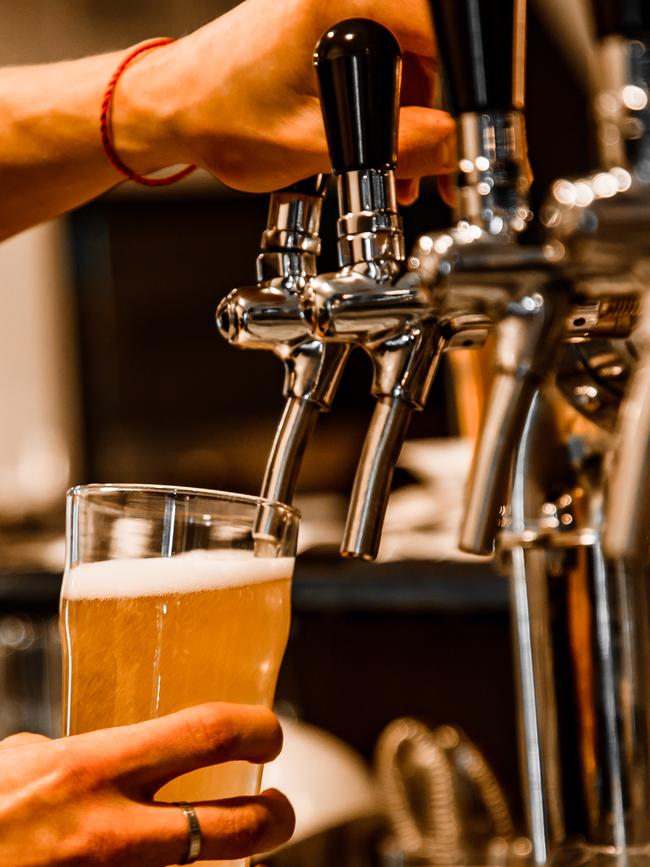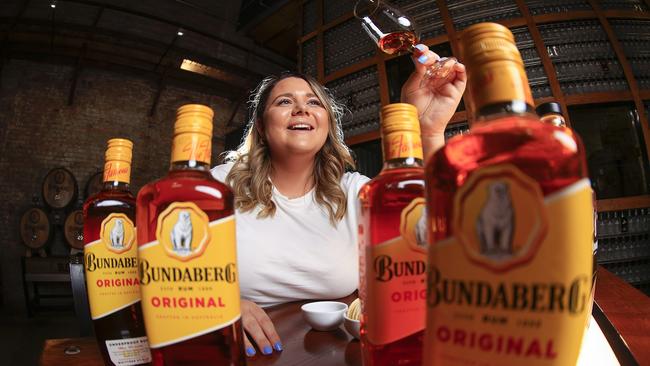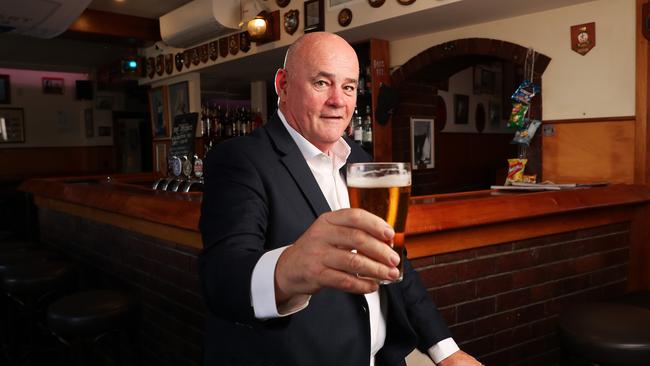James O’Doherty: More taxes are making beer taste a little bitter
Continued alcohol excise tax rises are forcing the cost of beer and spirits through the roof, writes James O’Doherty.
Opinion
Don't miss out on the headlines from Opinion. Followed categories will be added to My News.
Standing at the front bar of an inner-Sydney pub last week, my jaw almost hit the floor. This was not from any effect of alcohol — I had not even taken a sip.
I had just seen the cost of the pint of beer I had ordered: a whopping $17.25.
Admittedly, my tipple of choice was a craft beer (a “hazy IPA”), but not from one of those niche breweries only producing small batches at premium prices.
The cost of living is rising everywhere, and the pub is no different. It is now not unusual to fork out $15 for a pint at the local.
And from Monday that pint is going to get even more pricey, when the alcohol excise is hiked in line with inflation.
The issue is not one of the Albanese Government’s making, but it could become their problem, with distillers now targeting marginal electorates calling for taxes to be cut.
From next week, Australian drinkers will pay a total of $101.85 in excise for a litre of alcohol.

The tax hike is set to make a pint about 90 cents more expensive.
For a slab, you will end up paying $20 in excise, Brewers Association of Australia CEO John Preston said.
“About half the price of a $55 slab will be tax,” he mentioned.
Taxes on spirits are even higher than on beer: 63 per cent of the price of a 1L bottle of Bundaberg rum goes to the taxman.
That, Bundaberg Rum argues in a new ad campaign, is “Bear-faced robbery”.
And the tax on alcohol is only going to go up, every six months.
“The thing about this is that there is no end in sight,” Bundaberg Rum Chair Amanda Lampe said.
To put this in context, Australia already has some of the highest alcohol taxes in the world. We are third, behind Norway and Finland, on beer taxes.
For spirits, we are third behind Iceland and Norway.

This financial year, the alcohol excise will collect $7.86 billion in revenue, growing to almost $9 billion by 2027.
But the problem is, the increasing cost of alcohol is driving up inflation even further.
The CPI cost of alcohol and tobacco increased by 2.8 per cent in the three months to December 2023, Australian Bureau of Statistics data released on Wednesday revealed.
When the price of everything is going up, should the government really be making the problem worse by hiking taxes on a beer at the pub?
The industry, obviously, says no.
Distillers want a freeze in the excise indexation. The Australian Hotel Association is campaigning for taxes to be cut for alcohol consumed at bars, pubs, and restaurants “where someone has to be employed to pour the beer or make the drink”.
“We believe that there’s a far greater economic and social benefit in a pub, club or restaurant and we think that should be given more recognition in terms of how much excise is paid,” says AHA CEO Stephen Ferguson.

If the Albanese government is looking for ways to provide cost-of-living relief without fuelling inflation, surely freezing the increase on alcohol tax should be up for debate.
Former Prime Minister Scott Morrison considered the idea, when he planned to cut beer taxes in his last budget.
The policy was abandoned, after the spirits lobby labelled the plan “sexist” because people who enjoy mixed drinks would have missed out on the tax breaks.
Distillers argue that the current tax system is unsustainable and cripples Australian small businesses on the world stage.
“To be a successful exporter of spirits, you have to have a strong domestic business. The rate of tax that is put on every bottle of Australian spirits is a heavy burden that they have to carry and stops them growing their business,” Lampe said.
The alcohol excise is one of a number of “sin taxes” imposed on products like alcohol and cigarettes, on which the government is increasingly reliant.
Last year, Labor announced it would hike the tax on cigarettes by five per cent per year, to raise an extra $3.3 billion boost to the budget.
Yet all the while, one of the fastest growing ‘sins’ is left untaxed.
Instead of regulating and taxing vaping, the Health Minister Mark Butler is pursuing a total ban on e-cigarettes.
His efforts so far to stamp out vaping have been a complete failure.
Roy Morgan polling reported by The Daily Telegraph this week revealed that in the three months to December, 90,000 more people started vaping.
Butler announced this week that 250,000 illegal vapes had been seized at the border since the January 1 ban on disposable vapes came into force.
He’ll need to seize a lot more than that if his plan is to have any chance of succeeding. Meanwhile, the price of a pint will continue its slow and steady march upwards.
Something, perhaps, to ponder at the pub this weekend.
Do you have a story for The Daily Telegraph? Email tips@dailytelegraph.com.au



